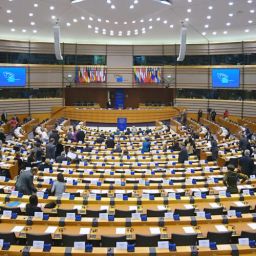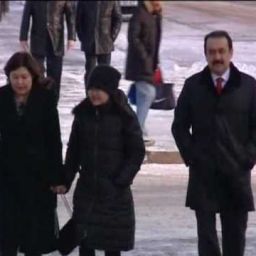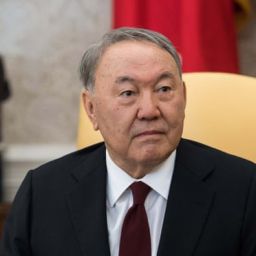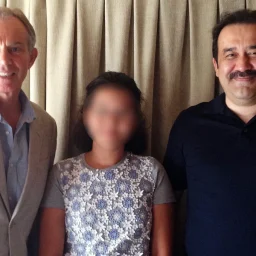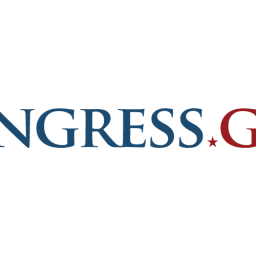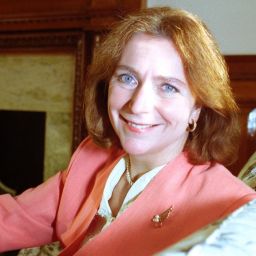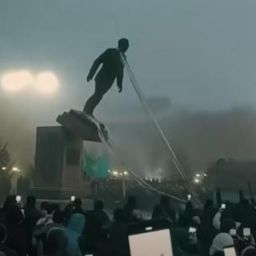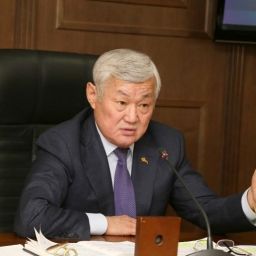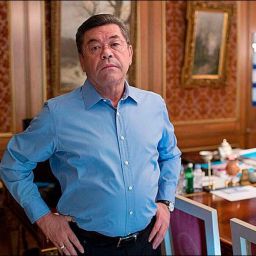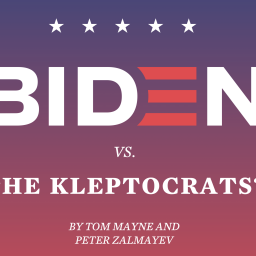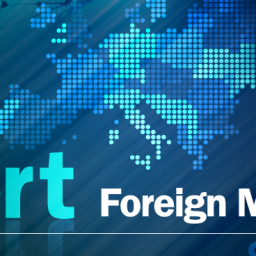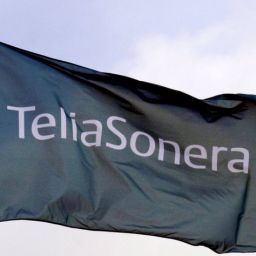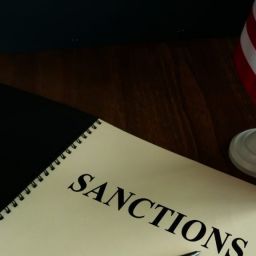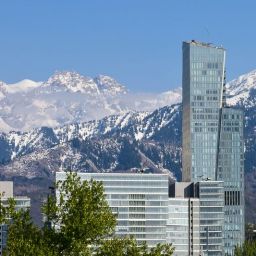33-year-old Russian Timur Turlov owns the lion’s share of a U.S. listed stock brokerage targeting clients in countries like Russia and Kazakhstan.
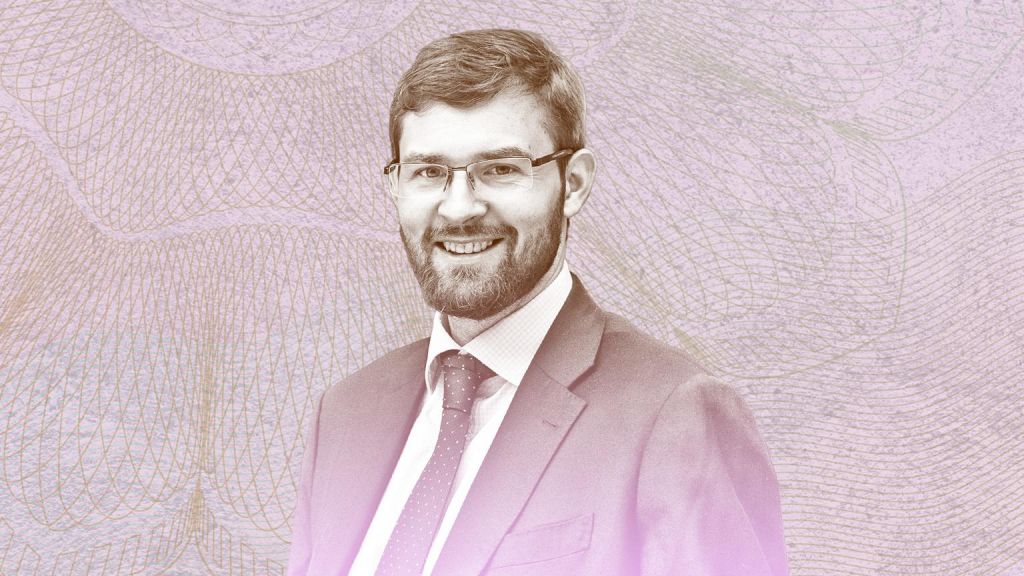
Timur Turlov has made a fortune tied to the stock market. But when the usually stoic Russian native is asked his thoughts about trading shares in GameStop, the video game retailer made red hot by Reddit day traders? He smiles, then rolls his eyes. “It’s too volatile. It’s bad for business in the long term.”
The 33-year-old’s business is selling stocks to retail investors—an activity that has made him incredibly wealthy. Shares of his Nasdaq-listed brokerage firm, Freedom Holding, rose a meteoric 200% in the year through early March, and enough to make Turlov a newcomer to Forbes’ list of the World’s Billionaires, ranked No.1,517, with an estimated net worth of $2.1 billion.
Turlov owns 72% of Freedom Holding, which is headquartered in Almaty, Kazakhstan. It had some 200,000 customers and revenues of $122 million in the year through March 2020. Freedom Holding—which has seven Freedom Finance subsidiaries sprinkled across Europe, Central Asia and the U.S.—is somewhat like Charles Schwab or other platforms that give everyday people access to invest in the stock market, except it’s aimed at providing citizens of the former Soviet bloc investment opportunities in U.S. stocks and IPOs as well as access to stocks on other global exchanges.
Revenue surged to $126 million in the six months from April to September 2020. And the stock has soared, tripling between March 5, 2020 and March 5, 2021. On April 12, it was trading at a hefty 13 times trailing revenues, with a $3 billion market capitalization. The surge, according to a February Bloomberg article, came about in part because Freedom Holding offered clients better access to American IPOs like Beyond Meat or Snowflake if they purchased more shares of Freedom’s own stock, along with heated consumer interest in retail trading. Russia in particular has seen a spike in retail traders in 2020, according to Standard & Poor’s.
But his brokerage has some unusual features. Trades in the U.S. markets are processed by an entity in Belize that is solely owned by Turlov. That entity locks up investors’ money for as long as 93 days, a relative eternity in the fast-moving world of stock trading.
Turlov spoke to Forbes about his life and business for nearly two hours over Zoom in February. He was at the Almaty home he shares with his wife and six children, dressed in a light blue sweater, white button down shirt and black wire rim glasses. (Disclosure: Turlov is a former contributor to Forbes Russia, a licensed edition of Forbes.)
Born in Moscow in 1987, Turlov grew up without his biological father, who he says left the picture when he was three years old. He has faint memories of his father buying him toys as a young child before he disappeared completely—and to this day Turlov says he remains on the country’s missing persons list. The Soviet Union’s fall added turbulence to the backdrop of his childhood, which included watching Hollywood movies about the American middle class. John Hughes’ Home Alone had a big influence, Turlov says, and not for the elaborate booby traps laid by Kevin McCallister, played by child star Macauley Culkin. “I wanted to own the same kind of home” as the iconic house from the film, Turlov explains.
Hollywood movies also inspired him to work in finance. As a young teenager, he heard a friend of a friend was using his computer to buy and sell stocks on the Russian market. “I remembered these Wall Street movies. And if you are doing something with the stock market, you should be very, extremely rich,” he says. Armed with $800 inherited from his grandfather, Turlov began his foray into the financial markets.
Although he lost money on his first online stock trades, Turlov says in 2003 he felt confident enough at age 16 to apply to a Moscow trading firm as a part-time junior trader. Once employed, he says he went from school to work in the late afternoon so he could work until midnight while the New York Stock Exchange was open. Turlov says he went to work as a trader at another bank in 2005 with the goal of building access to U.S. markets. He was 18 and making $1,000 a month, a decent salary for a young Russian trader, according to Turlov, but not as much as some of his more successful colleagues.
Then the global financial crisis struck in 2008. Turlov’s Moscow employer got clobbered, he says, when the bottom fell out of local junk bonds pegged to the Russian ruble. He and all of his colleagues lost their jobs when the bank decided to shutter their department. “At that time, it was not so easy to find a new job,” Turlov recalls. “I made the decision to start [a] firm based on our [existing] customer relationships.”
This is where Turlov’s origin story turns into American-style hustle. The firm that would become Freedom Holding was born with the help of a half dozen of Turlov’s colleagues from the bank’s failed trading division, who together contributed $100,000 to launch the new company. (Turlov claims he contributed the most startup capital, and later re-mortgaged his house to keep the business going.) That same year, Turlov earned his bachelor’s degree in economics and management at age 20 from Moscow State Technical University and got married.
From there it was a three-year slog. By 2011, competition between Russian brokers grew intense, Turlov says, prompting him to look for an easier path to grow business. That ended up being Almaty, Kazakhstan’s largest city and its former capital. As Turlov tells it, there were tons of Western-educated people in Almaty who weren’t yet trading on the stock market, making the city a natural fit for his growing brokerage. Business, he says, began to flourish.
As Freedom opened up shop in Ukraine, Uzbekistan, Kyrgyzstan and Germany, Turlov set his sights on America. “It was a very big dream for us,” Turlov says. “I had become determined to become a public company that would be good enough to be traded on [U.S. exchanges.] Because that’s the top of this business.” Freedom began the process in 2015 of a reverse merger with Bmb Munai, a former public Kazakh oil and gas exploration company incorporated in Nevada. By then Bmb Munai was a shell corporation, having sold its interests off to a Hong Kong company. Turlov says a mutual friend introduced him to Bmb President Askar Tashtitov, who “invited” him to go through the process of buying the shell and relisting it on a U.S. stock exchange. (Tashtitov now serves as president of Freedom Holding.)
After years of paperwork, legal footwork and multiple rounds of fundraising, Freedom Holding made its Nasdaq debut on October 16, 2019. Turlov says it’s the accomplishment of which he’s the most proud. “Never in my first days of my career would [I have been] able to expect that we will become a stock trading a million shares in a day,” he says.
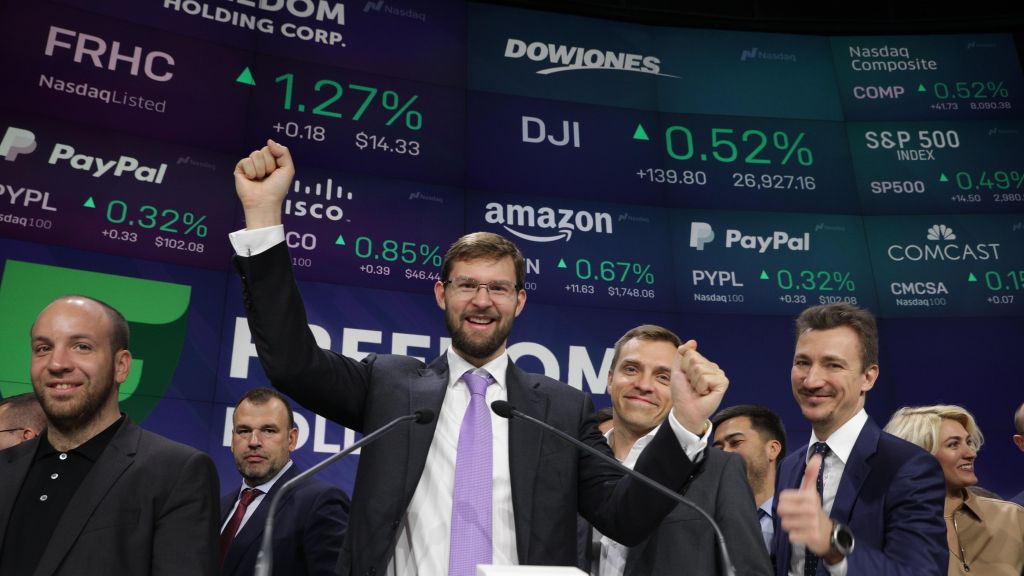
Yet there are questions about the entity that Turlov owns in Belize, a stock brokerage that processes U.S. trades for Freedom Holding’s Kazakh and Russian clients. That entity alone contributed a stunning 70% of Freedom’s earned commission fees from stock trades for the first half of the 2021 fiscal year, according to S&P analyst Roman Rybalkin in a November 2020 note. “We believe that operations in Belize are less transparent than those in the group’s domestic jurisdictions, which can contribute to compliance risks,” Rybalkin wrote.
Turlov claims that he is simply routing U.S. stock trades through the Belize-based entity because until recently, Kazakh regulators didn’t allow them to perform electronic market trading within the country’s borders. He says the Belize accounts are in the process of being “transformed” (i.e. transferred) onshore to Kazakhstan and Russia because local regulations around market access have eased. “Enough people have asked [about Belize] that it’s moving higher up as something that needs to be addressed,” Freedom Holding’s corporate secretary Adam Cook told Forbes.
Another criticism of the way Freedom does business is its mandatory 93-day lockup period for investing in IPOs. The policy states that customers who receive shares at or before an IPO are forced to keep their money tied up in those stocks for 93 days before the IPO, which differs from U.S. brokerages, which allow customers to place and cancel orders until the IPO takes place. A December 2020 article by the Foundation for Financial Journalism critical of the brokerage described the IPO practices as “unusual.” Asked about the long lockup period, Turlov replies via email: “As you are aware, IPO syndication and initiating an orderly trading market is a complicated undertaking.” He also says that Freedom’s methods are simply in service of their clients and partners.
Freedom Holding continues to expand. In late December, it spent $2.4 million to acquire Kassa Nova, a Kazakhstan bank, which offers consumer credit cards, alongside checking and savings accounts. The bank was purchased from another billionaire in Forbes’ ranks: Bulat Utemuratov, who’s worth an estimated $3.4 billion. In Kazakhstan, Freedom also offers auto insurance policies. As of January the company has its own seat on the New York Stock Exchange, thanks to the $2.5 million acquisition of broker dealer Prime Executions. That came with an office at Manhattan’s 40 Wall Street—a building owned by Donald Trump, right around the corner from the NYSE.
A 2017 Bloomberg story reported that Turlov had a cardboard Trump cutout for visitor selfies in Freedom’s headquarters. When asked about the cutout and if he was a Trump fan, Turlov expanded his circle of admiration. “We did have a cutout of Donald Trump in the office; now we have cutouts of Joe Biden and Elon Musk,” he wrote in an email. “Each of these men has traits I believe are worth emulating and I believe we can learn from each of them.”
As for the future, Turlov isn’t ruling out additional acquisitions. His biggest concerns, he says, are keeping up with competing brokerages and maintaining smooth operations for Freedom customers, who have experienced hiccups in service over the past year due to an influx of new customers paired with Freedom’s workforce transitioning to remote work amid the pandemic. Millions of Russians opened new retail brokerage accounts in 2020, per S&P analyst Rybalkin. Turlov credits Freedom’s upsurge to market volatility induced by the pandemic accompanied by low interest rates, paired with a larger cultural interest in investing.
“Our revenue was unexpected, even to me,” Turlov says. “It was some kind of miracle that we successfully built this company. We were lucky guys. We didn’t know it was supposed to be impossible. But now I’m understanding that it was a miracle that it happened at all.”Follow me on Twitter. Check out my website. Send me a secure tip.
Lisette Voytko is a wealth reporter at Forbes Magazine, focusing on billionaires, money and the world’s richest people. Previously on the Forbes breaking news desk. She…
Lisette Voytko , Forbes
